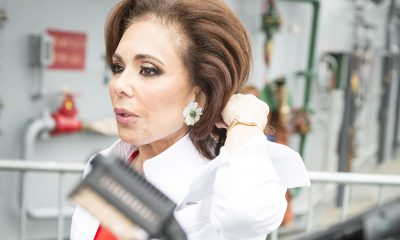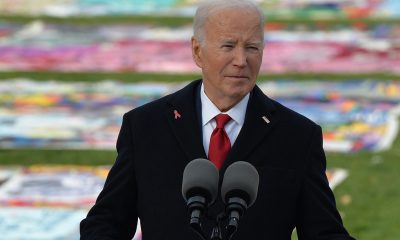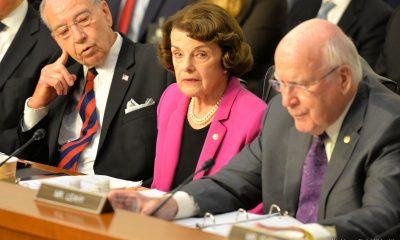a&e features
Victory for gay dads is defeat for Trump
Ruling in parentage fight deals blow to State Department policy
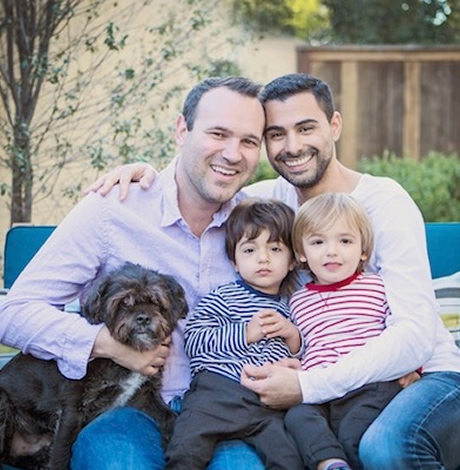
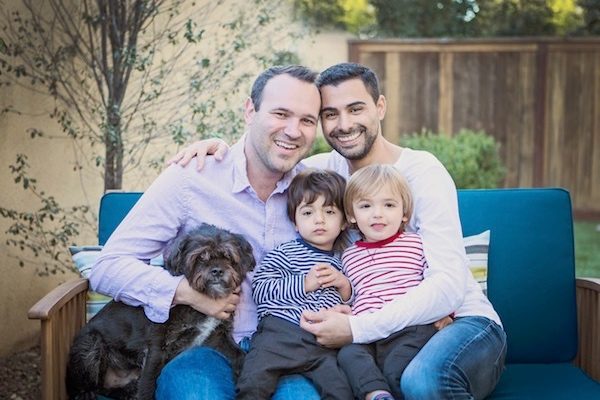
Andrew Dvash-Banks and Elad Dvash-Banks always knew they wanted to have a family. They just didn’t know how difficult it would be.
“That was one of the earliest conversations that we had when we first started dating,” Andrew told the Blade days after they won a federal lawsuit over the citizenship of one of their twins. “It’s obviously a very important conversation that any couple has when they start dating, because that could be a deal-breaker. So we were both on the same page about it: we both wanted children.”
Andrew, 38, was an American in Israel pursuing his master’s degree in 2008 when he met Elad, an Israeli, now almost 34. Having a family “was always on the radar,” a goal they knew would only be achievable through alternative reproduction technology.
The couple also knew they wanted to raise their family in California. “The thing that kept us from being with all my family—my parents, my five brothers and sisters, my 14 nieces and nephews—was DOMA (the Defense of Marriage Act),” says Andrew. DOMA was the federal law that prohibited same-sex marriage and thus prevented Andrew from sponsoring his foreign husband in emigrating to America, an automatic right for married heterosexual couples.
After they finished their degrees in 2010, Andrew had to choose between his family in Los Angeles or “being with the man I love. I don’t think anyone should ever have to be in that situation, to have to choose between the two. Obviously, I chose the man I love,” says Andrew. The coupled moved to Toronto in 2010 and got married.
Three years later, after DOMA was overturned, they started the application process for Elad to get a green card. That was finally approved in 2015, so they started to plan their family.
“For same-sex couples, family planning is a different process from different-sex couples,” says Elad. “It requires research, it requires preparation, it requires saving, it requires a lot of things that other couples don’t have to go through.”
They decided on surrogacy that was “all-consuming, mentally, financially, and time-wise,” says Elad. Both contributed genetic materials and subsequently chose “the two highest quality embryos that coincidentally were one from my genetic material and another from Andrew’s genetic material to be used in the pregnancy.”
Aiden and Ethan Dvash-Banks were born four minutes apart in September 2016. Four months later, Andrew and Elad went to the U.S. consulate in Toronto to prepare for their permanent move to LA.
“We came prepared with the boys’ birth certificates—obviously, we are listed on each birth certificate, exclusively, the two of us on each— and all the documents that are required and all the fees to pay,” says Andrew. “We were shocked and baffled and hurt by the response that the State Department official gave us—that she was going to require us to take a DNA test to prove the genetic connection between myself, the American citizen, and both children.”
The official referred to a State Department manual “that interprets the Immigration and Nationality Act and has a biological requirement that does not exist in the actual immigration law,” Elad says, when assisted reproduction technology is involved.
“Her question not only undermined the fact that we are one family, not only created a distinction between both of our kids—that we were legally on their birth certificates from the day that they were born—she also created a distinction between us and other, heterosexual couples, that she would never have asked this question,” says a still angry Elad. “If Andrew and I were a man and a woman, we would show up at a consulate with two beautiful children that have both of our names, on both birth certificates, she would never ask that.”
Elad asked the official directly if she would have required a DNA test of an infertile American man in a heterosexual relationship who used a sperm donor. “It’s at my discretion who I ask for proof of genetic connection,’” Andrew recalls the official saying.
They took the DNA test only to have Aiden granted citizenship and Ethan denied when the results determined that Andrew was not his biological father. However, Ethan was granted a tourist visa that expired last December.
Andrew and Elad Dvash-Banks reached out to Immigration Equality and with the law firm of Sullivan & Cromwell LLP, filed suit against the State Department on Jan. 22, 2018. “The State Department is refusing to acknowledge the citizenship of children whose parents are same-sex married couples. This policy is not only illegal, it is unconstitutional,” Aaron C. Morris, executive director of Immigration Equality and the couples’ attorney, said in a statement. “This action by the State Department disenfranchises children born to bi-national same-sex parents and places an undue burden on their families.”
On Feb. 21, they won. Los Angeles-based District Court Judge John F. Walter wrote in his 11-page ruling that 2-year-old Ethan Dvash-Banks “has been an American citizen since birth.” He also called the State Department official’s interpretation of the citizenship law “strained” at best.
But Walker did not rule on the constitutional merits of the overall State Department policy, making the ruling limited in scope and therefore not necessarily applicable to other families. Immigration Equality is hoping a similar case the advocacy organization filed on the same day and is fighting in Washington on behalf of a lesbian couple living in London will tackle the inequality of the policy’s application to same-sex and heterosexual couples. A judge in that case is considering whether or not the case should be dismissed or go to trial.
Immigration Equality had been working with the Obama administration on updating the policy and Hillary Clinton’s campaign also seemed interested, Morris tells the Blade. When the Trump administration wouldn’t even talk to Immigration Equality, they started looking for alternative ways to help with legal services and advice.
The State Department issued a statement saying “it was reviewing the ruling, but did not respond to questions about what it would mean for the policy going forward,” the New York Times reported. They have 60 days to appeal the ruling.
“I’m an American citizen, my tax dollars are going the State Department. This consulate is representing me and my interests,” says Andrew. “Who are they to turn to me and tell me that my son is not my son? I cut his umbilical cord. I’ve been there since the minute he took his first breath. I’ve changed every poopy diaper. I’m his father. I’m on his birth certificate. Just because I don’t share a genetic connection with him doesn’t make me any less his father than Elad. So it’s very hurtful.”
“I think there’s a fundamental problem with presumption of parentage,” says Elad. “When you see a heterosexual couple with kids, you assume that both of those parents are the genetic parents of those kids. But that might not be correct, and in fact there are many heterosexual couples who are not both genetically related to their kids. In same-sex couples, this presumption does not exist. We don’t enjoy the presumption of parentage because we are in a same-sex relationship. And that is, in our mind, the problem with the distinction that the State Department is making.”
The couple say they feel “so relieved, and so happy, that the court agreed” that Ethan is the same as his twin brother,” says Elad. But “with all the happiness and the joy of the decision, no one can give us back the two years of stress, of sleepless nights, of worries, of health issues for us, that we had to endure—wrongfully, because it wasn’t our fault. The State Department made the wrong decision. The judge’s decision says that clearly—that Ethan was an American citizen at birth. So, with the joy and the happiness of the decision, things are now corrected and are as they were supposed to be. But no one can give us back those two years we lost.”
Morris notes the internal harm caused to both parents and a child who is told they are not equal to their sibling. But he also sees hope ahead.
“We’ve been fighting for a very long time to ensure equality and we are still winning,” says Morris. “It’s a never-ending struggle. But it’s always worth the fight.”
The Immigration Equality hotline is 212-714-2904. But Morris suggests going to the organization’s website where there is a lot of useful information to help get you to the right person: immigrationequality.org.
a&e features
Visit Cambridge, a ‘beautiful secret’ on Maryland’s Eastern Shore
New organization promotes town’s welcoming vibe, LGBTQ inclusion

CAMBRIDGE, Md. — Driving through this scenic, historic town on Maryland’s Eastern Shore, you’ll be charmed by streets lined with unique shops, restaurants, and beautifully restored Victorian homes. You’ll also be struck by the number of LGBTQ Pride flags flying throughout the town.
The flags are a reassuring signal that everyone is welcome here, despite the town’s location in ruby red Dorchester County, which voted for Donald Trump over Kamala Harris by a lopsided margin. But don’t let that deter you from visiting. A new organization, Proudly Cambridge, is holding its debut Pride event this weekend, touting the town’s welcoming, inclusive culture.
“We stumbled on a beautiful secret and we wanted to help get the word out,” said James Lumalcuri of the effort to create Proudly Cambridge.
The organization celebrates diversity, enhances public spaces, and seeks to uplift all that Cambridge has to share, according to its mission statement, under the tagline “You Belong Here.”
The group has so far held informal movie nights and a picnic and garden party; the launch party is June 28 at the Cambridge Yacht Club, which will feature a Pride celebration and tea dance. The event’s 75 tickets sold out quickly and proceeds benefit DoCo Pride.
“Tickets went faster than we imagined and we’re bummed we can’t welcome everyone who wanted to come,” Lumalcuri said, adding that organizers plan to make “Cheers on the Choptank” an annual event with added capacity next year.
One of the group’s first projects was to distribute free Pride flags to anyone who requested one and the result is a visually striking display of a large number of flags flying all over town. Up next: Proudly Cambridge plans to roll out a program offering affirming businesses rainbow crab stickers to show their inclusiveness and LGBTQ support. The group also wants to engage with potential visitors and homebuyers.
“We want to spread the word outside of Cambridge — in D.C. and Baltimore — who don’t know about Cambridge,” Lumalcuri said. “We want them to come and know we are a safe haven. You can exist here and feel comfortable and supported by neighbors in a way that we didn’t anticipate when we moved here.”

Lumalcuri, 53, a federal government employee, and his husband, Lou Cardenas, 62, a Realtor, purchased a Victorian house in Cambridge in 2021 and embarked on an extensive renovation. The couple also owns a home in Adams Morgan in D.C.
“We saw the opportunity here and wanted to share it with others,” Cardenas said. “There’s lots of housing inventory in the $300-400,000 range … we’re not here to gentrify people out of town because a lot of these homes are just empty and need to be fixed up and we’re happy to be a part of that.”
Lumalcuri was talking with friends one Sunday last year at the gazebo (affectionately known as the “gayzebo” by locals) at the Yacht Club and the idea for Proudly Cambridge was born. The founding board members are Lumalcuri, Corey van Vlymen, Brian Orjuela, Lauren Mross, and Caleb Holland. The group is currently working toward forming a 501(c)3.
“We need visibility and support for those who need it,” Mross said. “We started making lists of what we wanted to do and the five of us ran with it. We started meeting weekly and solidified what we wanted to do.”
Mross, 50, a brand strategist and web designer, moved to Cambridge from Atlanta with her wife three years ago. They knew they wanted to be near the water and farther north and began researching their options when they discovered Cambridge.
“I had not heard of Cambridge but the location seemed perfect,” she said. “I pointed on a map and said this is where we’re going to move.”
The couple packed up, bought a camper trailer and parked it in different campsites but kept coming back to Cambridge.
“I didn’t know how right it was until we moved here,” she said. “It’s the most welcoming place … there’s an energy vortex here – how did so many cool, progressive people end up in one place?”
Corey van Vlymen and his husband live in D.C. and were looking for a second home. They considered Lost River, W.Va., but decided they preferred to be on the water.
“We looked at a map on both sides of the bay and came to Cambridge on a Saturday and bought a house that day,” said van Vlymen, 39, a senior scientist at Booz Allen Hamilton. They’ve owned in Cambridge for two years.
They were drawn to Cambridge due to its location on the water, the affordable housing inventory, and its proximity to D.C.; it’s about an hour and 20 minutes away.
Now, through the work of Proudly Cambridge, they hope to highlight the town’s many attributes to residents and visitors alike.
“Something we all agree on is there’s a perception problem for Cambridge and a lack of awareness,” van Vlymen said. “If you tell someone you’re going to Cambridge, chances are they think, ‘England or Massachusetts?’”
He cited the affordability and the opportunity to save older, historic homes as a big draw for buyers.
“It’s all about celebrating all the things that make Cambridge great,” Mross added. “Our monthly social events are joyful and celebratory.” A recent game night drew about 70 people.
She noted that the goal is not to gentrify the town and push longtime residents out, but to uplift all the people who are already there while welcoming new visitors and future residents.
They also noted that Proudly Cambridge does not seek to supplant existing Pride-focused organizations. Dorchester County Pride organizes countywide Pride events and Delmarva Pride was held in nearby Easton two weeks ago.
“We celebrate all diversity but are gay powered and gay led,” Mross noted.
To learn more about Proudly Cambridge, visit the group on Facebook and Instagram.
What to see and do
Cambridge, located 13 miles up the Choptank River from the Chesapeake Bay, has a population of roughly 15,000. It was settled in 1684 and named for the English university town in 1686. It is home to the Harriet Tubman Museum, mural, and monument. Its proximity to the Blackwater National Wildlife Refuge makes it a popular stop for birders, drawn to more than 27,000 acres of marshland dubbed “the Everglades of the north.”
The refuge is walkable, bikeable, and driveable, making it an accessible attraction for all. There are kayaking and biking tours through Blackwater Adventures (blackwateradventuresmd.com).
Back in town, take a stroll along the water and through historic downtown and admire the architecture. Take in the striking Harriet Tubman mural (424 Race St.). Shop in the many local boutiques, and don’t miss the gay-owned Shorelife Home and Gifts (421 Race St.), filled with stylish coastal décor items.
Stop for breakfast or lunch at Black Water Bakery (429 Race St.), which offers a full compliment of coffee drinks along with a build-your-own mimosa bar and a full menu of creative cocktails.
The Cambridge Yacht Club (1 Mill St.) is always bustling but you need to be a member to get in. Snapper’s on the water is temporarily closed for renovations. RaR Brewing (rarbrewing.com) is popular for craft beers served in an 80-year-old former pool hall and bowling alley. The menu offers burgers, wings, and other bar fare.
For dinner or wine, don’t miss the fantastic Vintage 414 (414 Race St.), which offers lunch, dinner, wine tasting events, specialty foods, and a large selection of wines. The homemade cheddar crackers, inventive flatbreads, and creative desserts (citrus olive oil cake, carrot cake trifle) were a hit on a recent visit.
Also nearby is Ava’s (305 High St.), a regional chain offering outstanding Italian dishes, pizzas, and more.
For something off the beaten path, visit Emily’s Produce (22143 Church Creek Rd.) for its nursery, produce, and prepared meals.
“Ten minutes into the sticks there’s a place called Emily’s Produce, where you can pay $5 and walk through a field and pick sunflowers, blueberries, you can feed the goats … and they have great food,” van Vlymen said.
As for accommodations, there’s the Hyatt Regency Chesapeake Bay (100 Heron Blvd. at Route 50), a resort complex with golf course, spa, and marina. Otherwise, check out Airbnb and VRBO for short-term rentals closer to downtown.
Its proximity to D.C. and Baltimore makes Cambridge an ideal weekend getaway. The large LGBTQ population is welcoming and they are happy to talk up their town and show you around.
“There’s a closeness among the neighbors that I wasn’t feeling in D.C.,” Lumalcuri said. “We look after each other.”
a&e features
James Baldwin bio shows how much of his life is revealed in his work
‘A Love Story’ is first major book on acclaimed author’s life in 30 years

‘Baldwin: A Love Story’
By Nicholas Boggs
c.2025, FSG
$35/704 pages
“Baldwin: A Love Story” is a sympathetic biography, the first major one in 30 years, of acclaimed Black gay writer James Baldwin. Drawing on Baldwin’s fiction, essays, and letters, Nicolas Boggs, a white writer who rediscovered and co-edited a new edition of a long-lost Baldwin book, explores Baldwin’s life and work through focusing on his lovers, mentors, and inspirations.
The book begins with a quick look at Baldwin’s childhood in Harlem, and his difficult relationship with his religious, angry stepfather. Baldwin’s experience with Orilla Miller, a white teacher who encouraged the boy’s writing and took him to plays and movies, even against his father’s wishes, helped shape his life and tempered his feelings toward white people. When Baldwin later joined a church and became a child preacher, though, he felt conflicted between academic success and religious demands, even denouncing Miller at one point. In a fascinating late essay, Baldwin also described his teenage sexual relationship with a mobster, who showed him off in public.
Baldwin’s romantic life was complicated, as he preferred men who were not outwardly gay. Indeed, many would marry women and have children while also involved with Baldwin. Still, they would often remain friends and enabled Baldwin’s work. Lucien Happersberger, who met Baldwin while both were living in Paris, sent him to a Swiss village, where he wrote his first novel, “Go Tell It on the Mountain,” as well as an essay, “Stranger in the Village,” about the oddness of being the first Black person many villagers had ever seen. Baldwin met Turkish actor Engin Cezzar in New York at the Actors’ Studio; Baldwin later spent time in Istanbul with Cezzar and his wife, finishing “Another Country” and directing a controversial play about Turkish prisoners that depicted sexuality and gender.
Baldwin collaborated with French artist Yoran Cazac on a children’s book, which later vanished. Boggs writes of his excitement about coming across this book while a student at Yale and how he later interviewed Cazac and his wife while also republishing the book. Baldwin also had many tumultuous sexual relationships with young men whom he tried to mentor and shape, most of which led to drama and despair.
The book carefully examines Baldwin’s development as a writer. “Go Tell It on the Mountain” draws heavily on his early life, giving subtle signs of the main character John’s sexuality, while “Giovanni’s Room” bravely and openly shows a homosexual relationship, highly controversial at the time. “If Beale Street Could Talk” features a woman as its main character and narrator, the first time Baldwin wrote fully through a woman’s perspective. His essays feel deeply personal, even if they do not reveal everything; Lucian is the unnamed visiting friend in one who the police briefly detained along with Baldwin. He found New York too distracting to write, spending his time there with friends and family or on business. He was close friends with modernist painter Beauford Delaney, also gay, who helped Baldwin see that a Black man could thrive as an artist. Delaney would later move to France, staying near Baldwin’s home.
An epilogue has Boggs writing about encountering Baldwin’s work as one of the few white students in a majority-Black school. It helpfully reminds us that Baldwin connects to all who feel different, no matter their race, sexuality, gender, or class. A well-written, easy-flowing biography, with many excerpts from Baldwin’s writing, it shows how much of his life is revealed in his work. Let’s hope it encourages reading the work, either again or for the first time.
a&e features
Looking back at 50 years of Pride in D.C
Washington Blade’s unique archives chronicle highs, lows of our movement
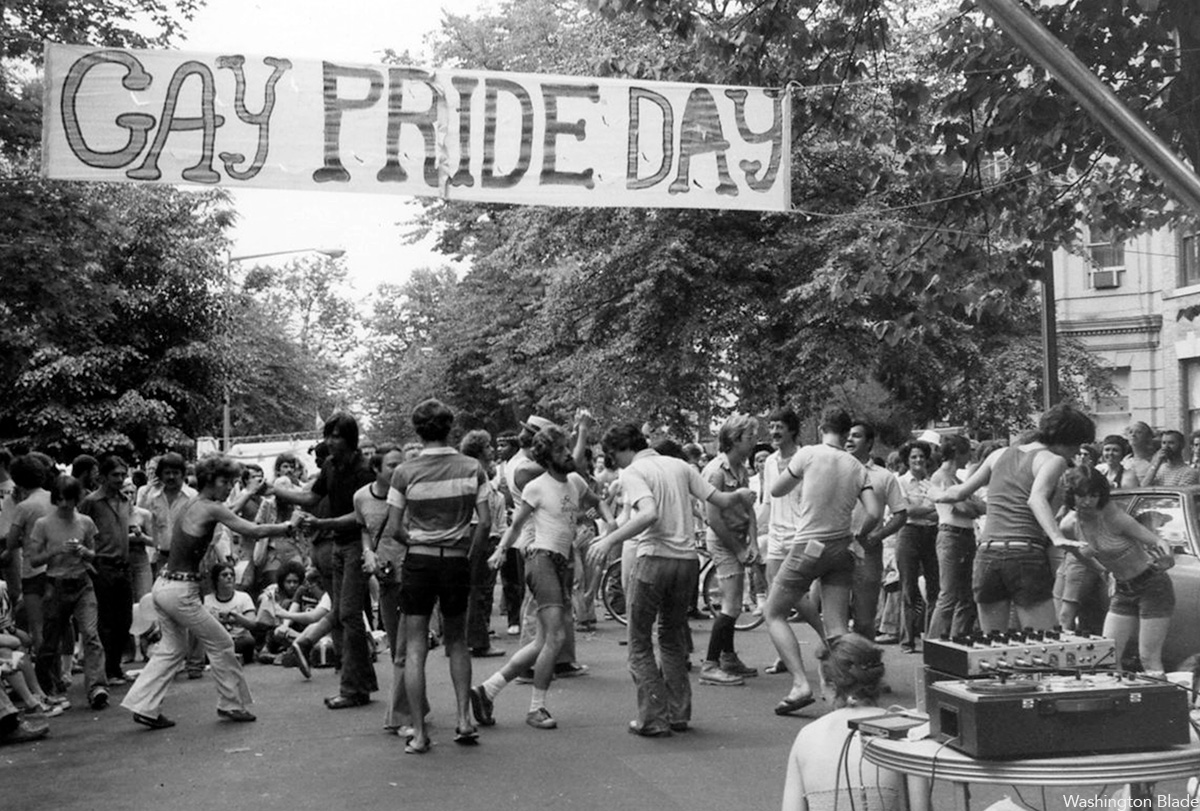
To celebrate the 50th anniversary of LGBTQ Pride in Washington, D.C., the Washington Blade team combed our archives and put together a glossy magazine showcasing five decades of celebrations in the city. Below is a sampling of images from the magazine but be sure to find a print copy starting this week.
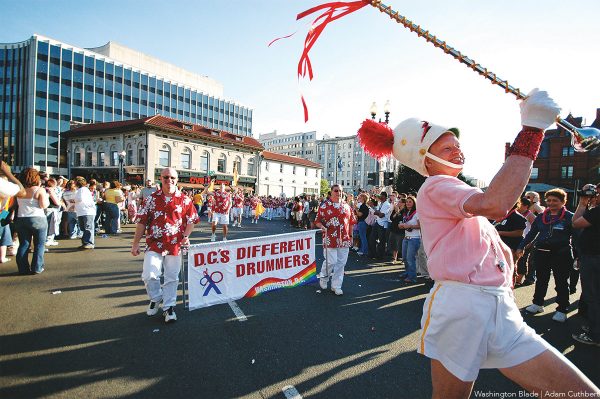
The magazine is being distributed now and is complimentary. You can find copies at LGBTQ bars and restaurants across the city. Or visit the Blade booth at the Pride festival on June 7 and 8 where we will distribute copies.
Thank you to our advertisers and sponsors, whose support has enabled us to distribute the magazine free of charge. And thanks to our dedicated team at the Blade, especially Photo Editor Michael Key, who spent many hours searching the archives for the best images, many of which are unique to the Blade and cannot be found elsewhere. And thanks to our dynamic production team of Meaghan Juba, who designed the magazine, and Phil Rockstroh who managed the process. Stephen Rutgers and Brian Pitts handled sales and marketing and staff writers Lou Chibbaro Jr., Christopher Kane, Michael K. Lavers, Joe Reberkenny along with freelancer and former Blade staffer Joey DiGuglielmo wrote the essays.
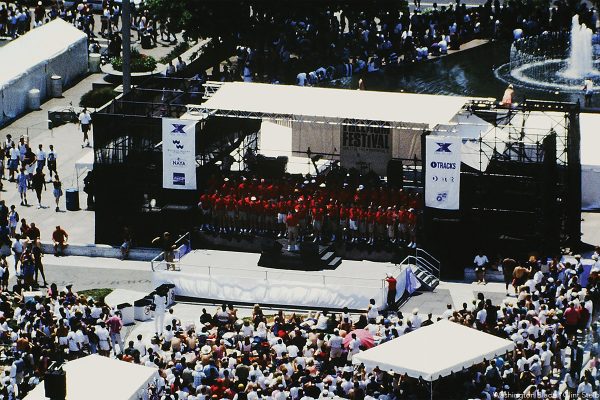
The magazine represents more than 50 years of hard work by countless reporters, editors, advertising sales reps, photographers, and other media professionals who have brought you the Washington Blade since 1969.
We hope you enjoy the magazine and keep it as a reminder of all the many ups and downs our local LGBTQ community has experienced over the past 50 years.
I hope you will consider supporting our vital mission by becoming a Blade member today. At a time when reliable, accurate LGBTQ news is more essential than ever, your contribution helps make it possible. With a monthly gift starting at just $7, you’ll ensure that the Blade remains a trusted, free resource for the community — now and for years to come. Click here to help fund LGBTQ journalism.
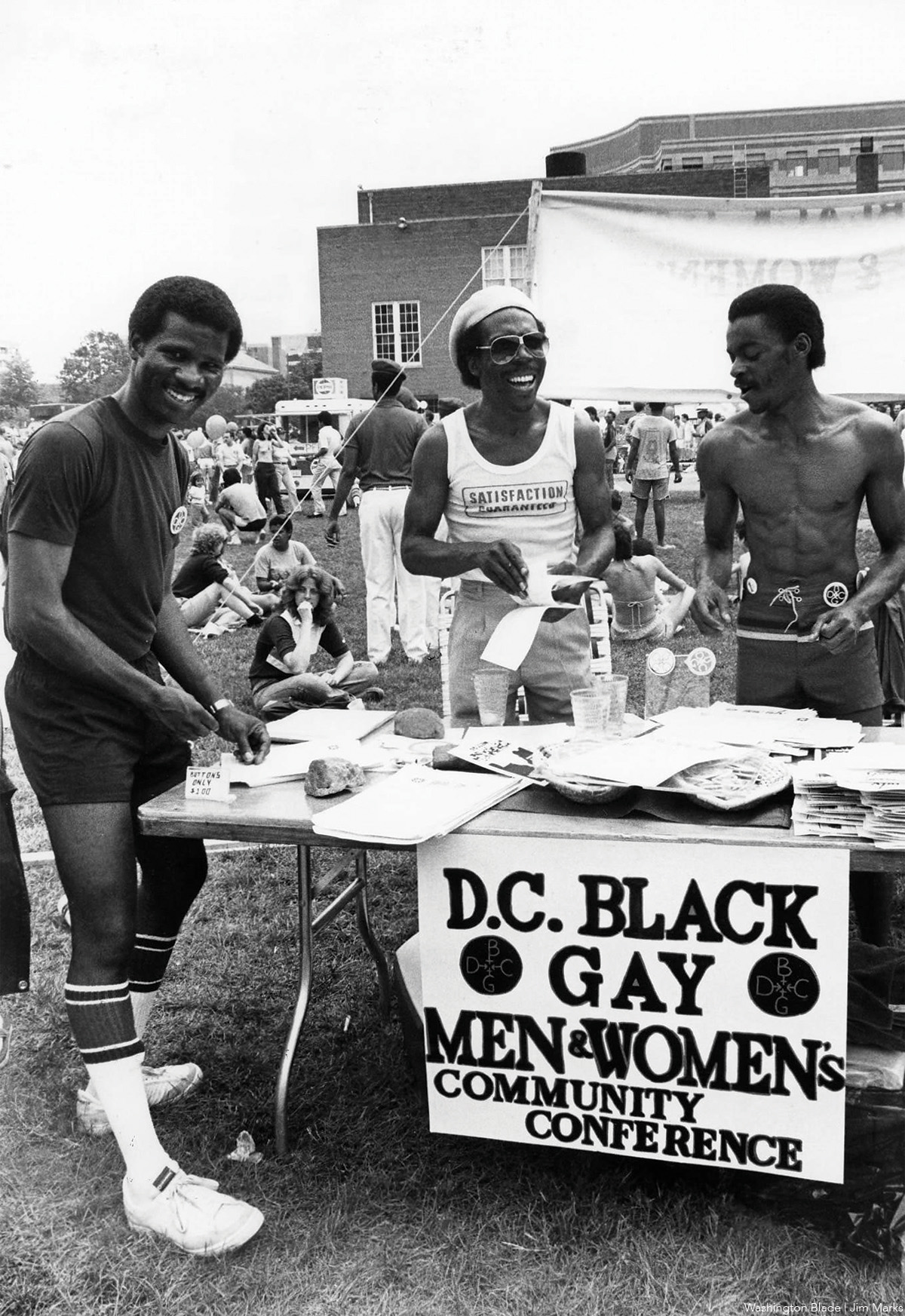
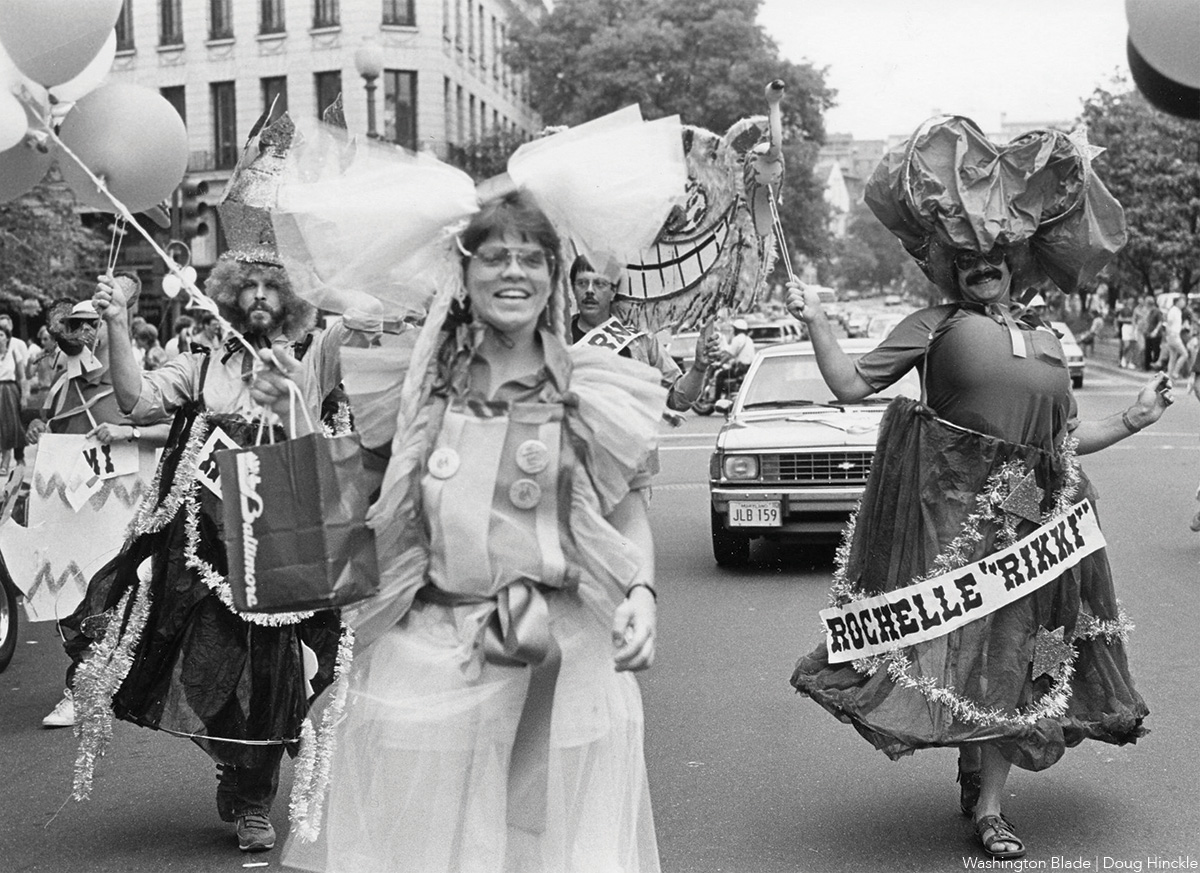
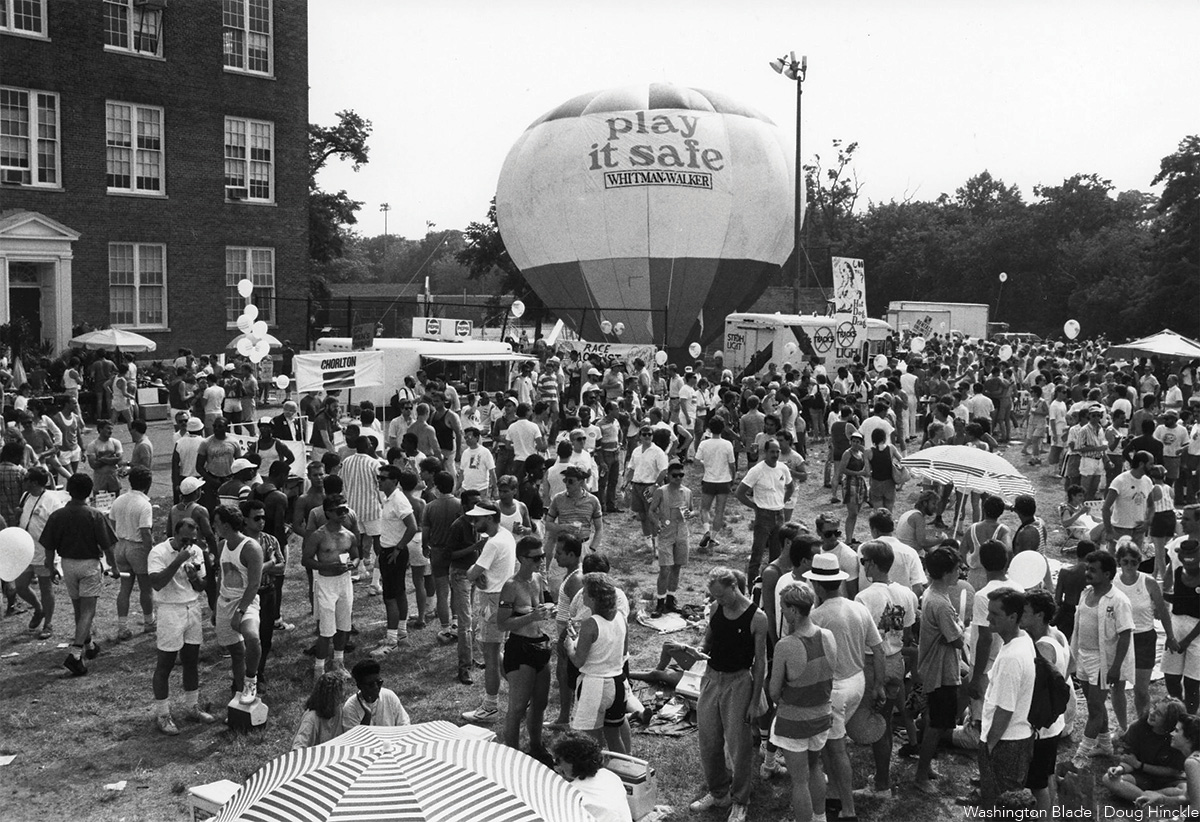
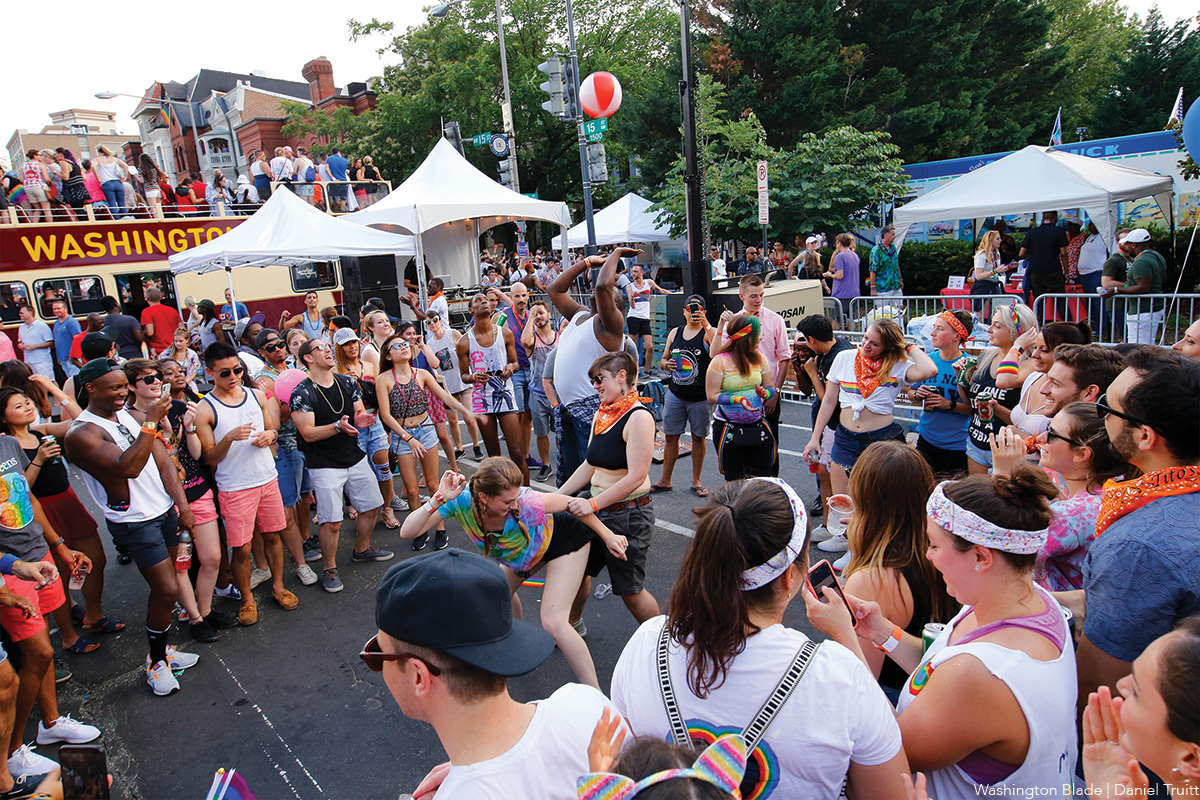
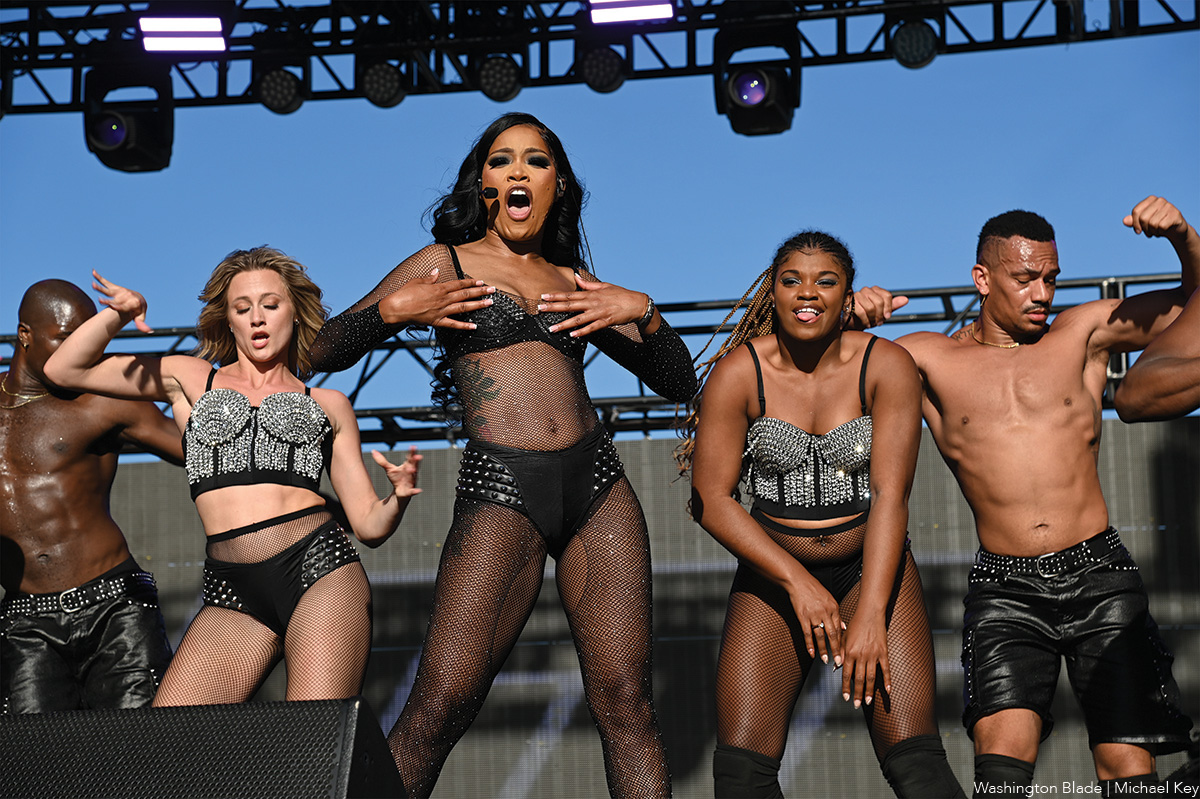
-

 U.S. Supreme Court3 days ago
U.S. Supreme Court3 days agoSupreme Court upholds ACA rule that makes PrEP, other preventative care free
-

 U.S. Supreme Court3 days ago
U.S. Supreme Court3 days agoSupreme Court rules parents must have option to opt children out of LGBTQ-specific lessons
-

 India5 days ago
India5 days agoIndian court rules a transgender woman is a woman
-

 National4 days ago
National4 days agoEvan Wolfson on the 10-year legacy of marriage equality

